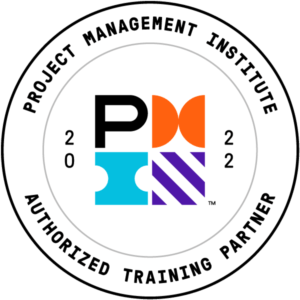3 powerful tips to pass the PMP® exam
Knowing our company name is ‘threon’, it might not surprise you that we strongly believe in the power of the number 3. That’s why we are eager to provide you with 3 tips to successfully pass PMI’s Project Management Professional (PMP®) exam. Let’s go!
Know what you need to know
This first tip seems obvious when you are studying for any exam. For the PMP® exam, however, it is crucial, yet often difficult to find out. Luckily, threon as PMI-Authorized Training Partner, can easily lead you to your exam success. How so?
- You’ll have access to our continuously updated training materials, which reflect to the latest status of the questions in the PMP® exam
- You’ll receive proven study strategies that enable you to answer situational questions, as that’s what the PMP® exam will test
- Our trainers illustrate PMP-knowledge using their many years of international practical experience in managing projects, with cross-industry practical examples, to make it all stick and easier for you to apply to your own real-life project(s).
Understand what you know
PMP® exam tests at a higher abstraction level than just if you are ‘able to reproduce the knowledge´ from your study materials. It tests whether you can apply project management knowledge in a variety of detailed situations. More specifically, the PMP® exam assesses your ability to execute project management tasks in 3 (yes, ‘3’ again!) domains:
- People: focusing on the team members and other stakeholders in a project.
- Process: focusing on the supporting processes of project management which enable you to get it organized professionally.
- and Business environment: focusing on how to ensure that your projects contribute to the realization of the organizational strategy.
A 21st-century project manager masters these three domains for practical application in a wide variety of project environments ranging from predictive, agile and hybrid project management approaches. Therefore, to successfully pass the PMP® exam, you need to familiarize yourself with these different approaches and understand when to select particular approach-dependent processes in specific project environments.
Apply what you understand
The majority of the PMP® exam questions typically will be situational questions, which reflect a brief case study. In this type of questions, it will be less obvious how to respond, as there will be more ´noise´ to read and consider, often resulting in more than one plausible correct answer. Therefore, and to use your limited time as efficiently as possible, you can apply the following 3-step strategy:
- For enabling targeted reading of the question, thus skipping all the ´noise: go to end first, as that´s where typically the question is raised. This enables you to understand the question better and assess which information in the question is relevant and not.
- Now, with the question in mind, you read and assess which information in each answer is relevant or not, or even untrue.
- Finally, based on the above and your project management knowledge and skills, you select the best possible answer.
These 3 tips (actually 3 times 3), will definitely simplify your PMP® exam study. Get in touch if you’re planning to take your PMP® exam or if you like to receive more info about Project Management certification. We are happy to support you.
PMI Authorized Training Partner

(the first in Belgium, The Netherlands and Luxembourg!)
This means threon has been reviewed and approved as provider of project management training by PMI. Next to this, as a PMI ATP, threon has agreed to abide by PMI-established quality assurance criteria and our trainers are PMP® credential holders.



